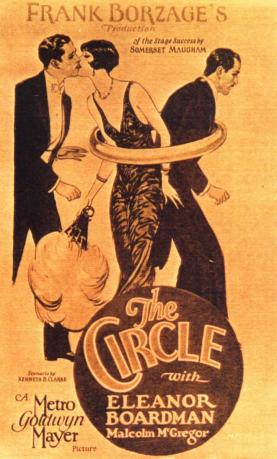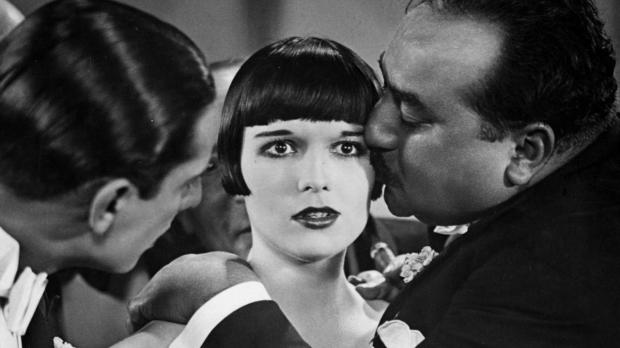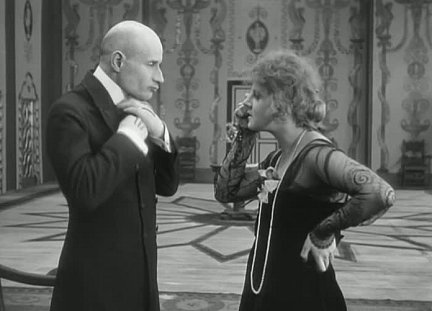 When Angela’s (Janet Gaynor) mother is gravely ill and needs medicine, she becomes desperate to do anything to get the money she needs. She tries prostitution, but when she doesn’t succeed with that, she steals the money. She’s arrested and sentenced to spend time in a workhouse, but she escapes to her home to see her mother, but her mother has died. With no money and nowhere else to go, she hides from the law by joining a traveling circus.
When Angela’s (Janet Gaynor) mother is gravely ill and needs medicine, she becomes desperate to do anything to get the money she needs. She tries prostitution, but when she doesn’t succeed with that, she steals the money. She’s arrested and sentenced to spend time in a workhouse, but she escapes to her home to see her mother, but her mother has died. With no money and nowhere else to go, she hides from the law by joining a traveling circus.
Despite everything she’s been through, Angela is content with her life in the circus. Although she isn’t specifically out to find love, she ends up falling in love with a street painter named Gino (Charles Farrell). While she can’t forget her past, he sees her for who she really is. But when she falls and breaks her ankle, she has to give up performing in the circus so she and Gino go back to her hometown of Naples. She hasn’t told him about her past and it’s not easy being back home. Gino continues to paint and although he’s improving as a painter, they struggle to get by until he get hired to paint a mural for a church. She’s also afraid of her secret past being revealed.
Gino really wants to marry Angela, but then her worst fears come true when a police officer recognizes her and she has to serve her one-year sentence in the workhouse. The officer gives her an hour to say goodbye to Gino, but she still won’t tell him what’s going on so she simply disappears from his life. Without Angela around, Gino is completely lost in life. His once promising painting career has gone downhill and he’s fired from painting the mural. When Angela is released, she’s once again, completely alone and penniless. With no other choice, she heads down to the wharf with the other prostitutes. It just so happens that Gino is down by the wharf looking for a woman to paint.
Street Angel is one of three movies that earned Janet Gaynor the honor of being the first actress to win a Best Actress Academy Award, the other two movies being Sunrise and 7th Heaven. Both Gaynor and Charles Farrell deliver great performances, they had great, very natural chemistry together. Gaynor in particular had the perfect amount of vulnerability that the role needed.
In both Street Angel and 7th Heaven, Gaynor was directed by Frank Borzage, who does an exceptional job with Street Angel. For a movie full of mundane settings, Borzage found ways to work in some extremely dramatic shots and beautiful cinematography. Thanks to him, not only is the movie’s story beautiful, it looks just as beautiful, too, and Janet Gaynor’s performance was the icing on the cake.








